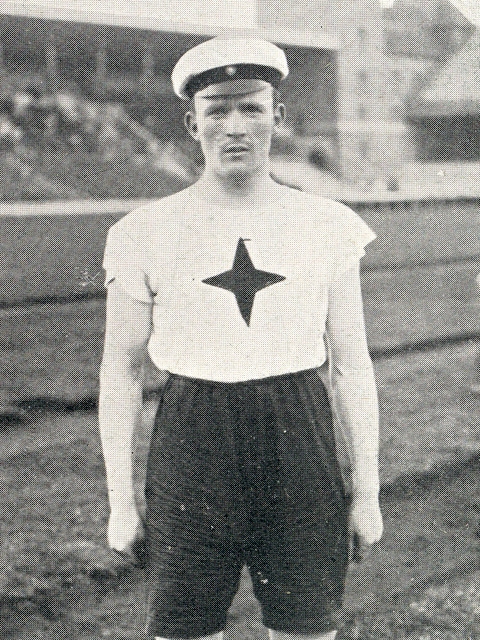
| Roles | Competed in Olympic Games |
|---|---|
| Sex | Male |
| Full name | Karl Hugo•Wieslander |
| Used name | Hugo•Wieslander |
| Born | 11 June 1889 in Ljuder, Lessebo, Kronoberg (SWE) |
| Died | 24 May 1976 (aged 86 years 11 months 13 days) in Bromma, Stockholm, Stockholm (SWE) |
| Measurements | 182 cm / 81 kg |
| Affiliations | IFK Stockholm, Stockholm (SWE) |
| NOC |  Sweden Sweden |
| Medals | OG |
| Gold | 0 |
| Silver | 1 |
| Bronze | 0 |
| Total | 1 |
Prior to the 1912 Olympics, the multi-event for track & field athletes was the all-around championship, a 10-event competition emphasizing strength events, but in preparation for the Stockholm Olympics, the Swedes devised another 10-event multi-event with more emphasis placed on speed and jumping ability. As the new decathlon was not contested much outside of Sweden before the Games, Hugo Wieslander, who had won three Swedish decathlons in 1911-12 in preparation for the Olympic Games, was considered a favorite. However, at the Olympic Games, Jim Thorpe won the new decathlon easily, defeating Wieslander by almost 700 points. A week before the decathlon, Wieslander had also finished seventh in pentathlon, also won by Thorpe.
Wieslander had already competed at the 1908 Olympics in five events, his best finish being fifth in freestyle javelin throw. He also won four Swedish titles – in high jump (1907), decathlon (1909) and pentathlon (1910 and 1911) and placed second-third eight times in various jumping and throwing events at the Swedish championships in 1906-08.
In 1913 Wieslander passed the state surveying exam and became employed by the Swedish cartography agency where he worked until his retirement. In January 1913, the news also broke that Thorpe had played minor league baseball in North Carolina in 1909 and 1910. The United States’ AAU reacted quickly and declared Thorpe a professional, with the IOC following suit and awarded the decathlon gold medal to Wieslander. For many years Wieslander was uncomfortable with keeping the 1912 gold medal and contemplated returning it to Thorpe. He finally reconsidered, and in 1951 donated it to the sports museum at the Swedish School of Sport and Health Sciences. In 1954 it was stolen from there and never recovered. In 1982, the International Olympic Committee made partial restitution when they restored Thorpe’s amateur status, and declared him, in an unusual ruling, decathlon co-champion with Wieslander.
Personal Bests: LJ – 6.56 (1912); SP – 13.15sq (1908); DT – 37.53 (1908); JT – 52.77 (1908); Dec – 5965 (1912).
| Games | Discipline (Sport) / Event | NOC / Team | Pos | Medal | As | |
|---|---|---|---|---|---|---|
| 1908 Summer Olympics | Athletics |  SWE SWE |
Hugo Wieslander | |||
| High Jump, Men (Olympic) | ||||||
| Long Jump, Men (Olympic) | ||||||
| Shot Put, Men (Olympic) | ||||||
| Discus Throw, Men (Olympic) | ||||||
| Discus Throw, Greek Style, Men (Olympic) | ||||||
| Javelin Throw, Men (Olympic) | ||||||
| Javelin Throw, Freestyle, Men (Olympic) | 5 | |||||
| 1912 Summer Olympics | Athletics |  SWE SWE |
Hugo Wieslander | |||
| 110 metres Hurdles, Men (Olympic) | ||||||
| Pole Vault, Men (Olympic) | ||||||
| Shot Put, Men (Olympic) | ||||||
| Shot Put, Both Hands, Men (Olympic) | ||||||
| Discus Throw, Men (Olympic) | ||||||
| Discus Throw, Both Hands, Men (Olympic) | ||||||
| Javelin Throw, Men (Olympic) | ||||||
| Javelin Throw, Both Hands, Men (Olympic) | ||||||
| Pentathlon, Men (Olympic) | 7 | |||||
| Decathlon, Men (Olympic) | 2 | Silver |